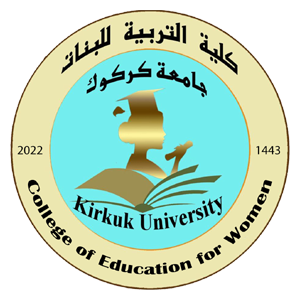Vision and objectives of the Quality Assurance and Performance Evaluation Division
Vision: To make the Quality Assurance Department one of the distinguished departments in spreading the concept of quality assurance in the college and its facilities and considering it a work requirement.
Mission: To instill the concept of quality education and to make quality standards a given in the work of every individual in the college and its formations, so that it becomes capable of keeping pace with continuous scientific development and qualifies it to obtain institutional and programmatic accreditation for all its programs.
Objectives:
1. Achieving the university’s mission and strategic objectives by ensuring the quality of educational, research and community activities.
2. Achieving a high level of quality in all college activities, including academic, research, administrative, and recreational programs.
3. Working on preparing a comprehensive guide that describes the job performance of all employees in the college’s various facilities according to their categories, and identifying training needs to develop job performance.
4. Communicate with local and international quality assurance institutions to benefit from their expertise in the field of quality assurance.
5. Encouraging departments to review their academic programs and compare them with advanced programs on a regular basis.
Tasks of the Training Unit in the Quality Division:
1. Implementing quality training programs.
2. Coordination with the administrative units in the college to implement all training programs.
3. Evaluation of training programs.
4. Preparing studies to develop training programs.
5. Responding to the circulars of other ministries regarding training programs.
6. Archiving and storing all administrative correspondence related to training.
7. Determine the training needs of all academic and administrative units in the college.
8. Providing suggestions on current planning, training and quality.
9.Preparing an integrated training plan for all training horizons (short-term, medium-term, long-term).
10. Building bridges of relationship between the training unit and other units in the Quality Department to achieve the desired integration in quality.
11. Preparing periodic reports on the training unit and submitting them to the division head after analyzing the results of training studies.
12 workshops were held on the importance of training and quality.
Evaluation unit tasks:
1. Completing performance evaluation files for teaching and functional staff in our college.
2. Assisting the administrative and academic units in the college and dictating the evaluation files.
3. Preparing periodic reports on the activities of the University Performance Evaluation Unit to the Quality Assurance Officer.
4. Analyzing the results of performance evaluation studies.
5. Thoroughly review performance evaluation forms within a timeframe, in coordination with academic and administrative departments, and ensure prompt response to instructions from the Ministry of Higher Education and other relevant authorities.
6. Providing academic promotion committees with evaluation scores for faculty members applying for academic promotion quickly and accurately.
7. Submit a multi-term plan for the future activities of the University Performance Unit.
8 workshops were held on the importance of university performance.
Tasks of the Laboratory Accreditation and Quality Unit in the Quality Assurance Division:
1. Disseminating the culture of Quality Laboratory Accreditation (JLP) in the college’s department laboratories.
2 Supervising the implementation of state specifications (ISO15198) (ISO17025) as well as
3. Auditing laboratory equipment standards and conducting periodic audits.
4. Determining a set of principles by the laboratory management in quality control.
5. Comparing actual performance with planned performance in laboratory performance to identify deviations and develop appropriate measures.
6. Activating safety and environmental measures such as ventilation, lighting, fire extinguishing system, and automatic extinguishing.
7. Coding devices and equipment and recording all data about them (manufacturer - year of manufacture - company name).
8 Coding of chemicals in the laboratory according to the approved coding system.
Holding workshops, seminars and meetings on laboratory quality.
10. Preparing an annual plan for the multi-range laboratory quality unit.
 College of Education for Girls – University of Kirkuk
College of Education for Girls – University of Kirkuk 

